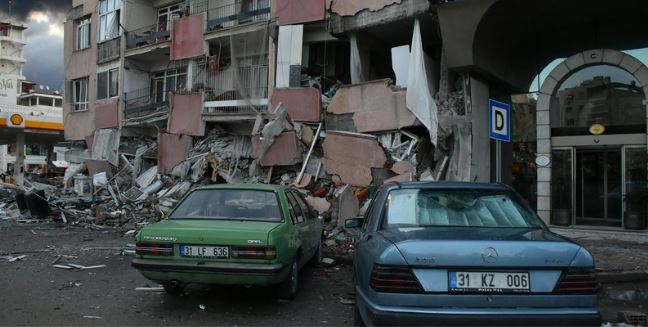On February 5, 2024, a devastating earthquake with a magnitude of 7.8 struck southern Turkey and northern Syria, leaving thousands of people dead and many more injured. The epicenter of the earthquake was located near Gaziantep, a major city in Turkey, with widespread damage reported across both countries, including in Aleppo, Syria.
The earthquake, which struck in the early hours of the morning, triggered massive destruction in the affected areas. Buildings collapsed, roads were destroyed, and vital infrastructure was severely damaged, making rescue and relief operations even more challenging. In Turkey, the earthquake primarily affected the provinces of Gaziantep, Hatay, and Kahramanmaraş, while in Syria, the city of Aleppo and surrounding regions were hit particularly hard.
Initial reports indicate that more than 4,000 people have lost their lives in Turkey alone, with the death toll in Syria expected to rise significantly as rescue efforts continue. Thousands more have been injured, and many are still trapped under rubble. Emergency response teams have been working around the clock, but the scale of the disaster has overwhelmed local resources.
Turkish President Recep Tayyip Erdoğan declared a state of emergency in the affected regions, mobilizing both military and civilian resources to aid in rescue operations. In Syria, where the ongoing civil war has already strained the country’s infrastructure, local authorities and international aid organizations have stepped in to assist with recovery efforts.
The United Nations and several humanitarian organizations, including the Red Cross and Médecins Sans Frontières (Doctors Without Borders), have also been working to provide emergency medical care and supplies. The UN has called for international support, highlighting the urgent need for both immediate relief and long-term recovery assistance for the affected communities.
The earthquake has compounded the already dire situation in Syria, where years of conflict have left many communities vulnerable. In addition to the immediate impact of the earthquake, the disaster has highlighted the ongoing challenges in providing aid to the region, particularly in areas controlled by opposition forces.
Both Turkish and Syrian officials have urged the international community for more support, as the scale of the disaster continues to unfold. The priority now is to save lives, provide shelter to displaced families, and rebuild the damaged infrastructure. Governments and organizations worldwide have pledged assistance, but the road to recovery is expected to be long and difficult for the survivors.



